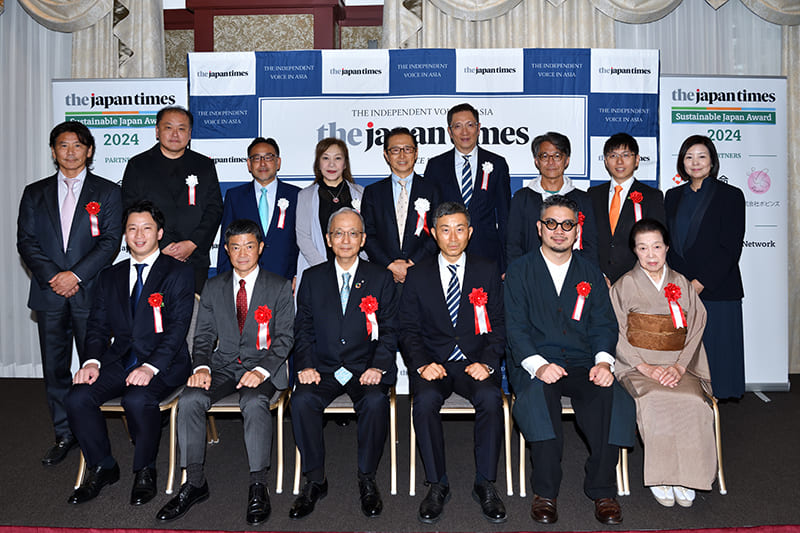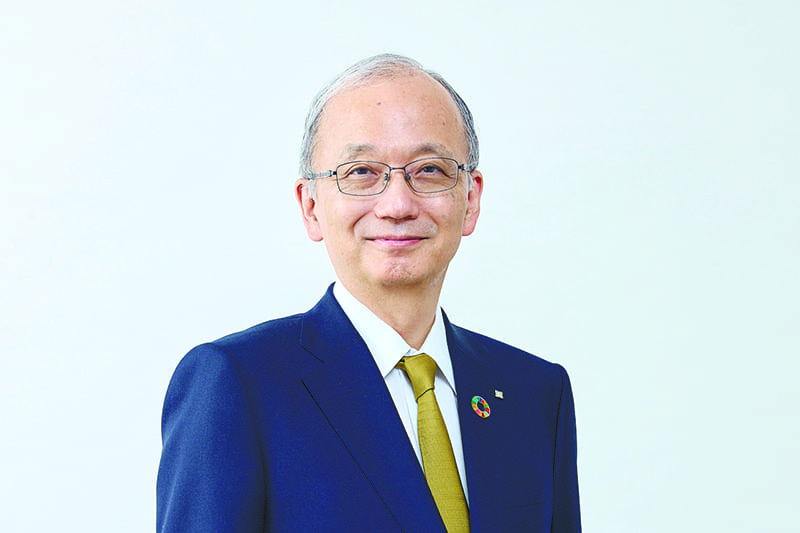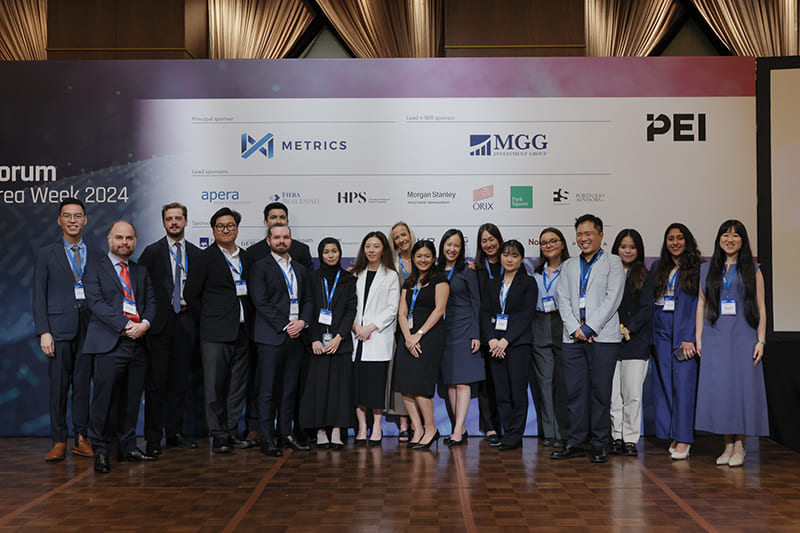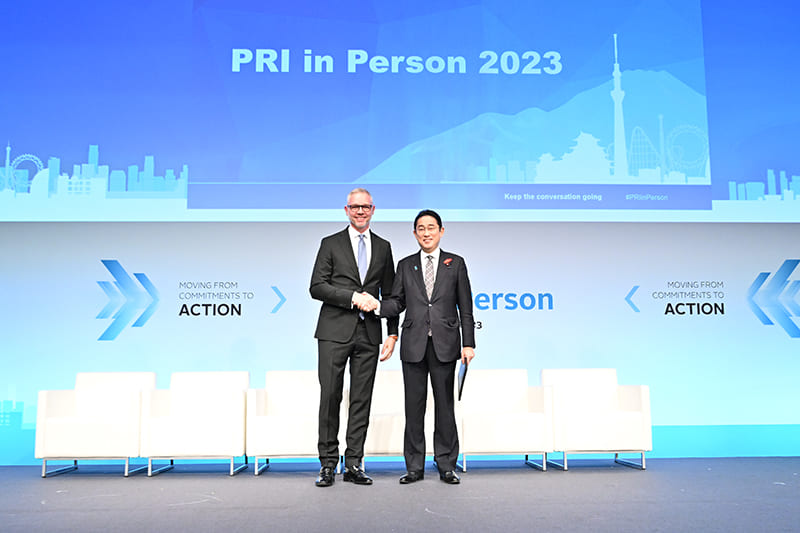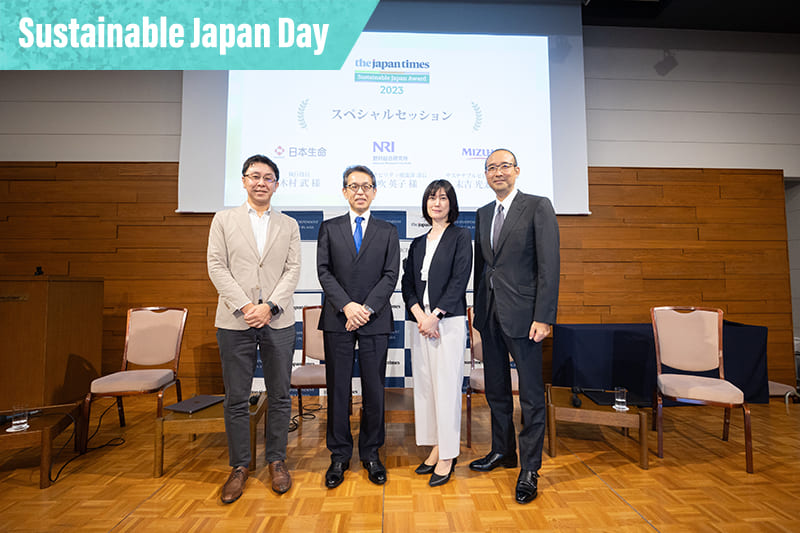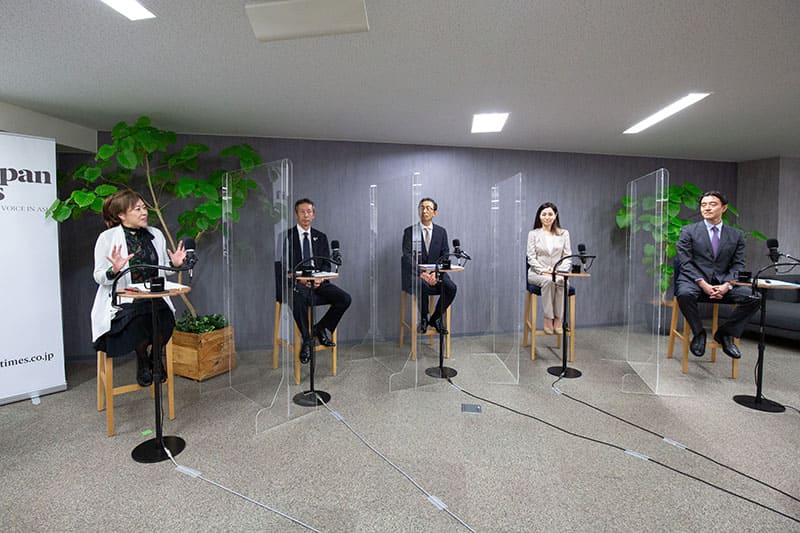June 16, 2025
Sumitomo Mitsui Trust, now 101, works toward ‘a flourishing future’
Sustainable Japan Award: ESG Grand Prize winner
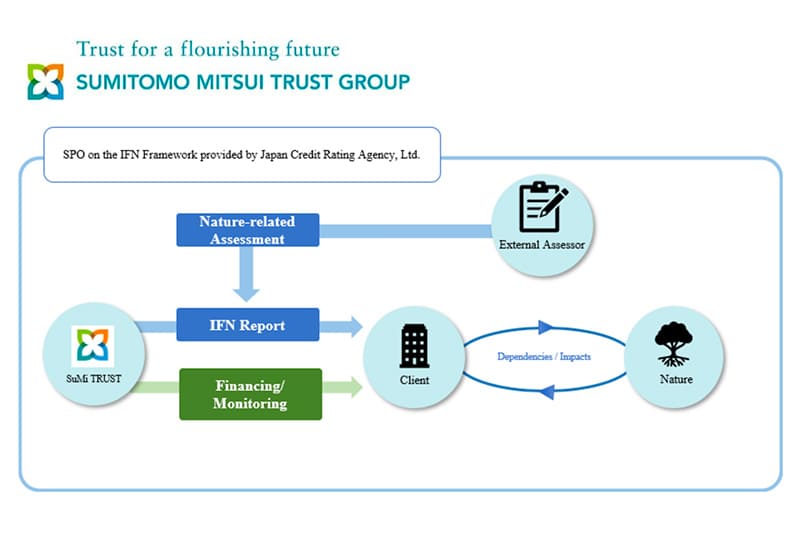
Not many financial institutions survive for over a century. Yet Sumitomo Mitsui Trust Group celebrated its centennial last year.
Its longevity is connected to how it upholds sustainability.
This comes from the way it develops financial products responsive to social issues, said Akiyo Inaba, executive manager for its sustainability management department.
“Rather than just seeking profit, the group has been willing to resolve concerns through its products,” Inaba said in a recent interview after the group won the Grand Prize in the ESG (environmental, social and governance) section of the Sustainable Japan Award 2024, sponsored by The Japan Times.
The group’s roots trace back to when the Mitsui Trust Co. was established as Japan’s first trust company, licensed to act as a trustee during individual and corporate customers’ asset transactions, in 1924 under the new Trust Business Law. Subsequently hundreds of financially unhealthy small-scale trust firms were born amid the post-World War I economic boom. Few of those survived. Mitsui Trust, along with two others — the Sumitomo Trust & Banking Co. and the Chuo Trust & Banking Co. — did, and in 2011 created Sumitomo Mitsui Trust Holdings (currently Sumitomo Mitsui Trust Group).

“If we look back at our history, we have created financial products and services that are linked to solutions for social issues,” Inaba said, citing loan trusts, pension trusts and land trusts as examples.
“The times are changing, but we always aspire to solve people’s problems by developing new financial products,” she said. “In that sense, I can say that our fundamental strength lies in our production capabilities.”
Today, the group declares that its “purpose” — the reason for its existence — is “Trust for a flourishing future” and that it is determined to balance social and economic values in all management decisions.
Inaba said one of the products that encouraged Sumitomo Mitsui Trust to start fostering sustainable financing, which aims to support a sustainable society, was its 2019 agreement with Fuji Oil Co. Ltd. on “positive impact finance.” That was based on the Principles for Positive Impact Finance, a framework launched by the United Nations Environment Programme Finance Initiative to help private financial institutions adopt comprehensive impact-based approaches to reach the U.N.’s sustainable development goals. Sumitomo Mitsui’s agreement with Fuji Oil, the leading Japanese producer of edible oils and fats, was a pioneering approach of positive impact financing with unspecified use of funds.
Under such financing, financial institutions holistically analyze and evaluate the environmental, social and economic impacts of corporate activities, unlike “sustainability-linked loans,” which help companies reach very specific goals. They need to analyze and monitor how companies can curb the negative impacts of their business while maximizing its positive impacts. Borrowers are thus required to commit themselves to disclosing relevant data and evaluation indexes.
Under the agreement with Fuji Oil, the group’s Sumitomo Mitsui Trust Bank started financing to help the company integrate positive environmental impacts into its business operations.
“Running diagnostic checks, including analysis of impacts, takes time and energy, but the process helped us build a relationship of trust with the customer,” Inaba said. “I think the case was the starting point for our sustainable finance.”
The latest example of the trust group’s sustainable finance products is an offering on “impact finance for nature.” Sumitomo Mitsui Trust Bank struck the deal in March with Nissui Corp., a leading Japanese processor of marine products. Through the financing, the bank evaluates the company’s impacts on nature and supports its commitment to biodiversity, a theme that has gained increasing attention from global institutional investors as the next big issue to work on. The bank also helps the company to raise its level of disclosures and monitor its progress toward the recovery of marine resources.
A potential risk for the global sustainable finance market is the recent exodus of some financial institutions from their international alliances, with the United States at the epicenter. Following Donald Trump’s victory in the U.S. presidential election in November, six of the U.S. largest banks, as well as major Canadian and Japanese financial institutions other than Sumitomo Mitsui Trust Group, withdrew from the United Nations Net-Zero Banking Alliance even though concerns about record-high temperatures and extreme weather events are growing.
Sumitomo Mitsui Trust Group has not changed its commitment to the environment. “Nothing has changed as to what we should do about ongoing climate change,” Inaba said. “What we all should be concerned about is whether we really can reach net zero. We should not loosen our grip on actions against climate change.”
The Sustainable Japan Award commends individuals, companies and organizations who have made advances in sustainable efforts. To learn more, visit https://sustainable.japantimes.com/sjaward2025

